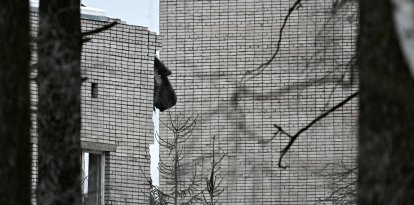Iranian Parliament approves a law that toughens penalties for women who do not wear a hijab
The new rule will also punish those who wear clothing that allows "nudity of any part of the body or wear thin or tight clothing."

Protestas en Irán / Cordon Press
A few days after the first anniversary of the murder of Mahsa Amini during her arrest by the Iranian Moral Police for not wearing a hijab, the Iranian Parliament approved a law that toughens penalties for women who do not wear a hijab in public. The new measure, which will be tested over the next three years, establishes penalties such as prison sentences of up to five years, fines of up to $2,000, the confiscation of cars and the prohibition of driving, in addition to deductions from wages, employment benefits and prohibition from accessing banking services.
Iran's Guardian Council has the final say
The Law to Support the Culture of Chastity and the Hijab was approved with 152 votes in favor, 34 against and seven abstentions out of a total of 201 members of Parliament. After passing through Parliament, the proposal must now be ratified by the Guardian Council, according to the Iranian news agency Miza. It is a body with 12 members, six jurists and six clerics, in charge of reviewing the bills that pass Parliament. If its criteria are not met, its members can veto the regulations.
The new legislation is not limited to the use of the hijab. Women and girls who exhibit "nudity of any part of the body or wear thin or tight clothing" in public spaces or on social media can also be punished. It prohibits the use of ripped pants, short sleeves and shorts, among other garments. Loss of job is one of the sanctions contemplated for those who fail to comply with these regulations.
Since the death of the young woman at the hands of the Moral Police, women have appeared on public roads without a hijab as a symbol of protest against the regime.

























